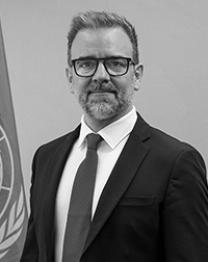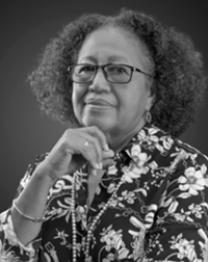
Services: A new frontier of economic transformation for equitable, inclusive and sustainable development
The services sector has become a key driver for boosting economic activity, jobs and exports. UNCTAD research shows that, over the last decade, global services exports grew 5.3% annually, more than double the growth of goods exports. This trend has intensified in the context of evolving globalization, financialization, digitalization, the roll-out of artificial intelligence, the energy transition and technological and geoeconomic shifts.
Services are playing a growing role in the production of goods, a phenomenon called servicification. Services can make up as much as two-thirds, of the value of exported manufactured goods, highlighting their importance for competitiveness, diversification and economic resilience.
Some developing countries have been able to leverage services to accelerate structural transformations. Others have seen growth in the services sector, though with a limited corresponding upgrading of productive and trade structures. Moreover, the non-tradable services sector of such countries remains relatively large.
Participants at the Global Services Forum will identify challenges and opportunities for developing economies. The discussion will centre on strategies and policies to leverage the services sector as a new frontier for structural transformation, economic diversification and resilience-building. Trade and productive transformation policies will be given special emphasis. The forum will likewise serve as a platform for policy dialogue and peer learning.
Programme
Opening remarks: Pedro Moreno, UNCTAD Deputy Secretary-General
Keynote address: Kunal Sen, Director, United Nations University World Institute for Development Economics Research
High-level panel and discussion
Questions
- What policy lessons can developing countries, including the least developed countries, draw from successful service-enabled development strategies?
- How can services be integrated into national policies to foster structural transformation? What are the key binding constraints for developing services and how can they be addressed?
- How can international trade frameworks and partnerships better support developing countries in growing service sectors that drive sustainable development and economic resilience?
- How are services and servicification reshaping economies and global value chains? What policy frameworks can maximize opportunities and reduce risks? How can the challenges of measuring servicification and digitalization be overcome to support policymaking?
- What is the role of non-tradable services in contemporary development strategies, particularly in poorer countries?
Speakers
- Rui Miguêns de Oliveira, Minister of Industry and Commerce, Ministry of Industry and Commerce of the Republic of Angola
- Julio Moltó, Minister of Commerce and Industry, Ministry of Commerce and Industry of the Republic of Panama
- Lattanaphone Vongsouthi, Deputy Permanent Secretary, Ministry of Industry and Commerce of the Lao People's Democratic Republic
- Carla Natalie Barnett, Secretary-General, Caribbean Community
- Shaikha Al Nowais, Secretary-General elect, UN Tourism
Moderator: Luz María de la Mora, Director, Division on International Trade and Commodities, UNCTAD
Mr. Pedro Manuel Moreno of Spain, is Deputy Secretary-General of UNCTAD.
He has over 20 years of experience of working for multilateral and intergovernmental organizations in programme, management and strategic positions both in the field and at headquarters.
He was Deputy Secretary-General of the Communication for Development Committee at the Spanish National Commission with the United Nations Educational, Scientific and Cultural Organization (1999-2004), and for the United Nations Development Programme, at the Country Office in Ecuador and, in New York City, as part of the Human Development Report team, at the Regional Bureau for Latin America and the Caribbean and at the Executive Office.
In 2014, he was appointed Chief of Staff of the Ibero-American Conference in Madrid, where he coordinated key political processes and South-South cooperation projects.
In September 2021, he was named Chief of Staff and Director of the Office of the Secretary-General of UNCTAD.
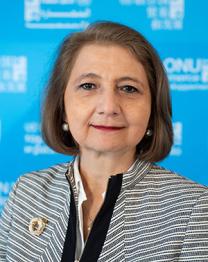
Luz Maria de la Mora is the Director of UNCTAD's Division on International Trade and Commodities. As a former Vice-Minister for International Trade and decades of government and private sector positions, Ms. de la Mora developed a career in international trade policy, negotiation, operations, and trade promotion.
During her tenure as Vice-Minister for International Trade of Mexico from 2018 to 2022, Ms. de la Mora led Mexico's trade and investment policy, overseeing fourteen free trade agreements with 51 countries. To bolster Mexico's development, she steered discussions in the World Trade Organization, the United States-Mexico-Canada Trade Agreement, Comprehensive and Progressive Agreement for Trans-Pacific Partnership, and Pacific Alliance, among others. She also coordinated policy dialogues and handled private sector consultations.
Ms. de la Mora holds a PhD in Political Science from Yale University, USA, a Master's degree in International Affairs from Carleton University, Canada, and a Bachelor's degree in International Relations from El Colegio de México, Mexico.
She is fluent in English and Spanish, and proficient in French.

Rui Miguêns de Oliveira was appointed Minister of Industry and Commerce in the Government of Angola on 12 July 2023. He was previously Deputy Governor of the National Bank of Angola and Executive Vice President of Banco Keve.
Mr. de Oliveira is the founder of Banco Valor, an institution where he held, among others, the positions of Vice-Chairman of the Board of Directors (2014); Vice-President of the Board of Directors and Chairman of the Executive Committee (2013-2014); and Chairman of the Board of Directors (2011-2013).
His academic curriculum includes courses in financial programming and policy analysis from the Bank of Portugal and the IMF Institute, as well as a course of public finance management by Harvard University, Massachusetts, United States of America.
He has a degree in Economics from the University of Havana, Cuba. It also has the courses of Reserve Management and Foreign Exchange Policy – ESADARM/FMI – Kadoma, Zimbabwe; Monetary and Foreign Exchange Operations – IMF Institute, Washington, United States of America (US); Reserve Management – First National Bank of Pretoria, South Africa, and the course of Risk Management and Analysis of Public Projects, by Duke University of North Carolina, USA.
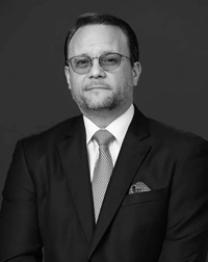
Julio Armando Moltó Alain is an engineer by profession, with extensive and varied professional experience in both the public and private sectors. In the government sphere, he has held important positions such as Director of the National Police, Executive Secretary of the Security Council and Executive Secretary of the Ministry of the Presidency.
In the private sector, he has worked in the area of social communication and logistics, holding the position of Executive Vice-President and General Manager of the GESE Publishing Group, New Media Manager at Corprensa, Manager of Mi Diario and General Manager of Solo Container Panama. This extensive experience has allowed him to develop strategic and management skills in diverse and dynamic environments.
During the 2009-2014 presidential term, he served as Director of the Panamanian National Police, demonstrating leadership and management skills in the public sphere.
Throughout his professional life, he has accumulated solid experience in public and private service, establishing himself as a recognised and respected figure in his field.
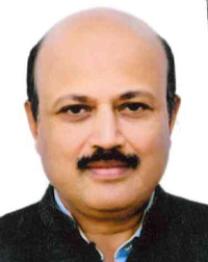
Rajesh Agrawal is a distinguished civil servant with more than three decades of service marked by leadership, policy formulation and implementation across a wide spectrum of sectors, including skill development, human resource development, power, fertilizers, agriculture and MSME sectors.
Rajesh has been instrumental in the development of national policies and guidelines for skill development and has served as a focal point for overseeing implementation of the same. He represented India for three consecutive years as an official delegate to the WorldSkills Governing Council. In the past, he has also led institutional and sectoral reforms in the states of Manipur, Jharkhand and Bihar in the domains of power and agriculture.
In the Department of Commerce, he supervised India’s trade negotiations under various free trade agreements and served as the Chief Negotiator for the India–US Bilateral Trade Agreement, the Indo-Pacific Economic Framework, the India–Australia Comprehensive Economic Cooperation Agreement and the review of the ASEAN FTA. He also focused extensively on export promotion in the agriculture and allied sectors.
Rajesh assumed charge as Commerce Secretary on 1 October 2025. As Commerce Secretary, he continues to guide India’s trade policy, trade negotiations and export promotion, advancing the vision of Viksit Bharat @2047 and working to establish India as a prominent global economic power.
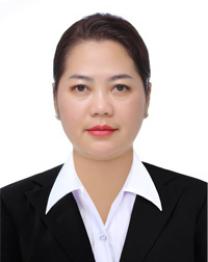
Lattanaphone Vongsouthi currently serves as the Deputy Permanent Secretary at the Ministry of Industry and Commerce (MOIC) of the Lao People’s Democratic Republic. In this role, she oversees the coordination and supervision of all Trade-Related Technical Assistance (TRTA) initiatives in the Lao People’s Democratic Republic through the Trade and Private Sector Working Group under the Round Table Process.
She provides strategic guidance and leadership in implementing the Trade and Private Sector Development Roadmap of the Ministry and plays an instrumental role in formulating the Five-Year Industry and Commerce Development Plan (2026–2030).
With more than 15 years of experience in the mobilization and management of development assistance within the trade and private sector spheres, Lattanaphone has held several key positions within the Ministry. Most recently, she served as Director of the National Implementation Unit (NIU), where she contributed significantly to enhancing the effectiveness of Aid for Trade, promoting public–private dialogue to improve the business environment, and advancing technical assistance to strengthen trade facilitation, business competitiveness, and private sector development in the Lao People’s Democratic Republic.
Carla Natalie Barnett PhD CBE is the 8th Secretary General of the Caribbean Community (CARICOM), she assumed office on 15 August 2021.
Dr. Barnett is an economist who has worked across the English-speaking Caribbean and had broken several barriers along the way. She was the first woman to be appointed as Deputy Governor of the Central Bank of Belize (1991-1996). She was the first woman, and youngest person to be appointed as Deputy Secretary-General of CARICOM (1997-2002); and the first woman to be appointed as Financial Secretary in Belize (2004-2007). She has also worked at the Caribbean Development Bank, as a Country Economist (1989-1990), and as Vice President, Operations (2012-2014).
As a consultant, Dr. Barnett has provided advisory services to a range of multilateral and bilateral agencies working across the CARICOM Region, including the Inter-American Development Bank, Canadian International Development Agency (now Global Affairs Canada), United Kingdom Department for International Development and the United Nations Development Program.
Dr. Barnett was a candidate for the United Democratic Party in the Freetown Constituency in 2015 and lost to the then Leader of the Opposition. She was subsequently appointed to the Senate as Vice-President and a Minister of State in the 2015 – 2020 Belize Government.
She is a long-time advocate for gender equality, not only because it is the right thing to do to create a more stable and equitable society, but also because gender equality is good economic policy. She is an active member of the Caribbean Institute of Women in Leadership (CIWiL) Belize Chapter. She continues to serve on the Board of the Belize YWCA and is a past president. She has also served on the Board of Haven House, which is a shelter for battered women.
Dr. Barnett has received several notable awards, including the Insignia of the Commander of the British Empire (CBE) for distinguished public service (2005), the Alumnae Achievement Awards by her schools in Belize, St Catherine Academy (2008) and St John's College (2007); and the UWI Belize Alumnae Association Award for excellence in Economics and Development (2011).
Shaikha Al Nowais is a distinguished leader in global tourism and hospitality, with an extensive background in delivering governance, sustainability, and economic development projects and initiatives across the Middle East, Africa, Eastern Europe, and Turkey. Shaikha’s service to the tourism industry extends beyond the private sector, to a number of voluntary stewardship roles where she champions inclusion, education and growth.
Her candidacy for UN Tourism Secretary-General is anchored in a vision of sustainability, digital transformation, ethical governance, and cultural advancement.
As a progressive and forward-thinking leader, Shaikha is dedicated to working with global partners to unlock the economic potential of tourism, and guide the industry toward a sustainable, innovative, and inclusive future.
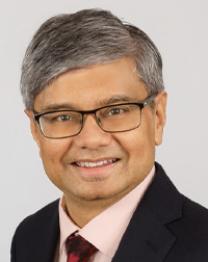
Kunal Sen has over three decades of experience in academic and applied development economics research. Since 2019 he has served as Director of the United Nations University World Institute for Development Economics Research (UNU-WIDER) while on leave from the Global Development Institute, University of Manchester, where he is a professor of development economics.
Kunal is a leading international expert on the political economy of growth and development. He has performed extensive research on international finance, the political economy determinants of inclusive growth, the dynamics of poverty, social exclusion, female labour force participation, and the informal sector in developing economies. His research has focused on India, East Asia, and sub-Saharan Africa.
In addition to his work as a professor of development economics, Kunal has been the Joint Research Director of the Effective States and Inclusive Development (ESID) research



